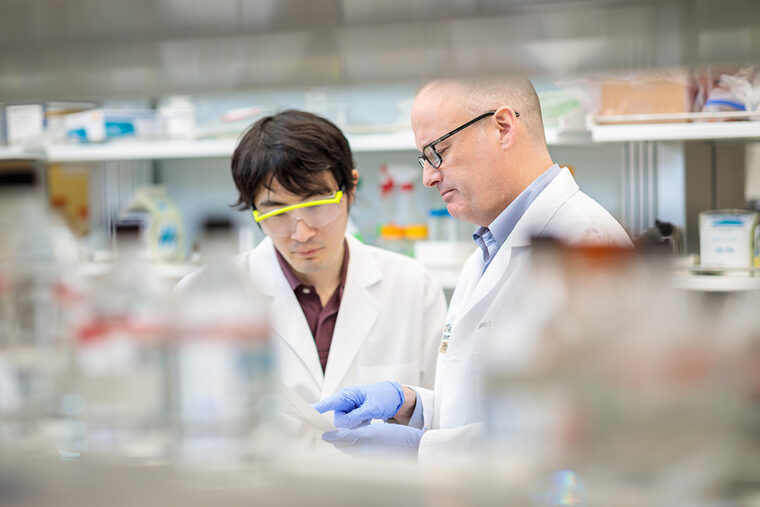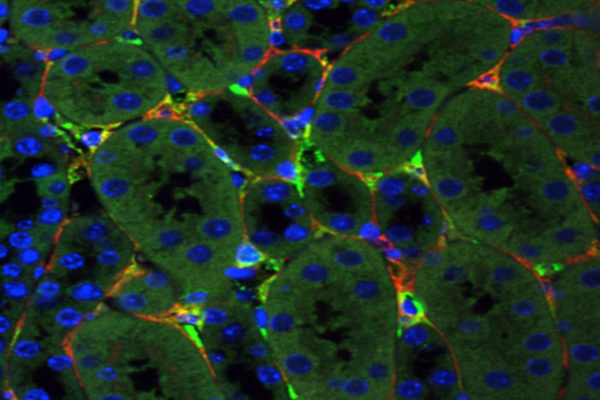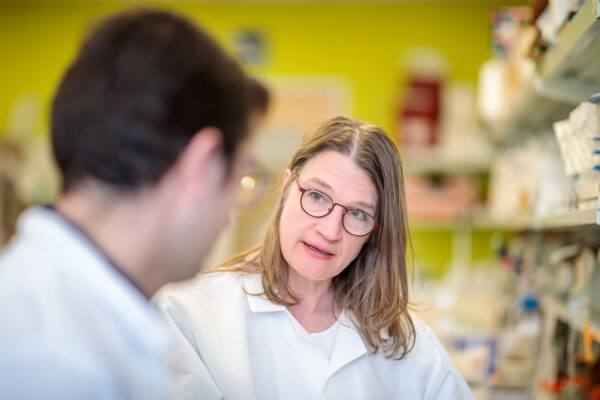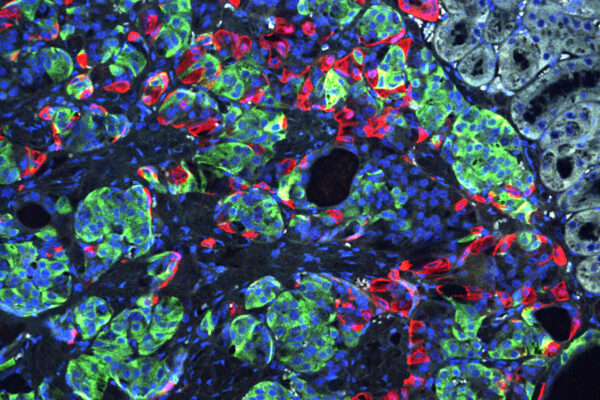Benjamin D. Humphreys’ hobbies include experimenting with international cuisine in his kitchen, harvesting heirloom tomatoes in his backyard, and growing miniature kidneys in his laboratory.
He has been perfecting his first two hobbies for years. However, his interest in growing tiny kidneys — specifically, using human stem cells to cultivate kidney organoids — began in earnest in 2016, shortly after he was named director of the Division of Nephrology in the Department of Medicine at Washington University School of Medicine in St. Louis.
“It still amazes me that we can do this,” said Humphreys, MD, PhD, a noted nephrologist whose lab is funded by the National Institutes of Health (NIH). “This is the sort of cutting-edge scientific innovation that made me want to come here. Organoids are great models of kidney development and, potentially, kidney disease and transplant. There’s tremendous potential.”
Lab-grown organoids may one day help repair damaged kidneys or be used to test drugs aimed at fighting kidney failure, a growing problem in the United States, with more than 100,000 new cases annually. The potentially fatal condition affects 37 million Americans, most of whom don’t realize they have chronic kidney disease. No cure exists, and current treatments for end-stage disease mostly are limited to costly kidney transplants and dialysis.
“Ben Humphreys is an innovative and distinguished global leader in kidney research,” said Victoria J. Fraser, MD, head of the Department of Medicine and the Adolphus Busch Professor of Medicine. “Not only is he a brilliant physician-scientist, he is a generous collaborator and mentor.”
Humphreys earned a bachelor’s degree in English and American literature in 1991 from Harvard College in Cambridge, Mass., and his medical degree and PhD in physiology and biophysics in 2000 from Case Western Reserve University in Cleveland. He completed an internal medicine residency at Massachusetts General Hospital in 2002 and a nephrology fellowship at Brigham and Women’s Hospital in 2005. He was an associate professor at Harvard Medical School before joining the faculty at Washington University, where he is the Joseph Friedman Professor of Renal Diseases in Medicine.
What most interests you about the kidney?
The kidney is a fascinating, resilient organ. One of its characteristics that my lab studies is kidney regeneration. When a kidney suffers an acute injury, which might occur if you are ill and lose a lot of blood, the kidney has a powerful capacity to repair itself. Our hope is to harness this trait for therapeutic uses.
The kidney also is complex. The measure of its complexity is the number of different cell types that comprise it. There are more than 35 distinct cell types in a human kidney. It’s the body’s second most complex organ, behind the brain. However, the kidney’s function is simple. It’s a highly tuned responsive filter that dictates whether sodium, potassium, water and other substances need to be reabsorbed or secreted to keep the body perfectly in balance.
Read Humphreys’ full profile on the School of Medicine site.



